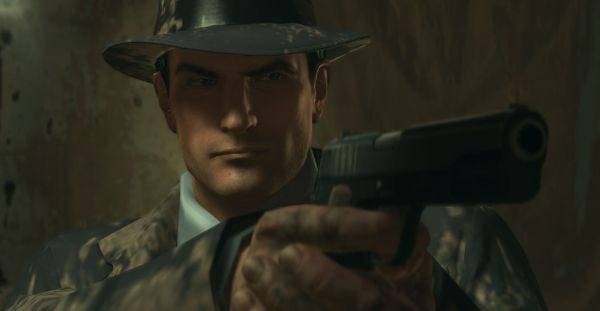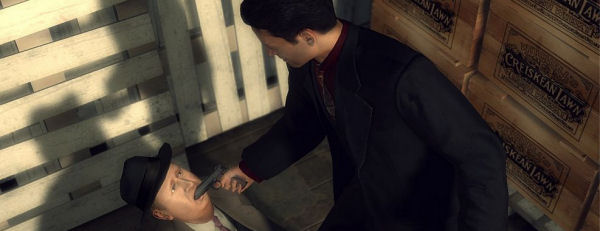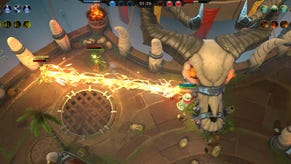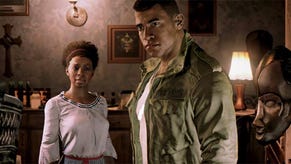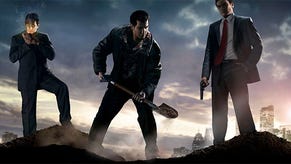I Am The Mob: Mafia II, Subjectivity And Story
I wasn't really following the Mafia II is-it-good-or-nob controversy, for the simple reason that I thought it was probably a little bit nob. When the initial reviews came in, there was a clear division between people who thought it was a bit of a disappointment and people who thought it was supa-dupa-fly. To be honest, I presumed that the people who liked it were presumably just not very bright and had fell into the AAA-game + pretty + a bit of hype = 9/10 trap, because I can be just as judgemental as any reader when I put my mind to it. Quinns didn't like it much. John felt similarly. Both particularly singled out the narrative for eye-rolling, with Walker noting it "should be damned is for its banal story" and despite the perhaps-best-ever acting "the lines they’re delivering, however, are blabber."
So, no, none of this exactly put it on my To Play list.
Then a couple of things turned up in my RSS churn. You had people like The Escapist's Russ Pitts saying things like... oh, I have to quote this one in full:
Mafia II is rich with the kinds of attributes that we rarely see in entertainment anymore, and which may be unfamiliar to modern audiences. It has a meaningful story, well-paced plot, mood, a living setting and carefully crafted performances from artists, actors, writers and directors. It is, in other words, the evolution of the art of storytelling. It is to videogames what Hamlet was to theater, an introspective tale of the burden of human existence wrapped in a layer of easily-digestible entertainment. And just as Shakespeare's play transcended the medium of theater to now be considered art, so too, I would argue, has the work of Daniel Vavra and the rest of the team at 2K Czech.
At a similar time, one of my favourite game bloggers Bill Harris wrote...
Here's the first thing you need to know about Mafia II: Daniel Vávra is the best writer in gaming today. Period. He's sitting in a room, and no one else belongs in that room. No one else is even knocking on the door.
Even though Bill went back a little on that as he finished it, neither of these are stupid men. But neither are Quinns and John. That basically smart cookies could disagree that vehemently made me want to get to get to the truth of the matter. This was something I had to have an opinion on. I installed Mafia II.
By the time I'd finished it, I could see where people were coming from. It's a story about a low-level made-man who never really rises about his original station. He starts as a man lifting boxes and that's how he remains. He sells everything he has and can't hold onto anything. What his friends do to their friends, he ends up doing to his own. The acting really is incredible for a game - though it's somewhat lucky that there's so few female characters considering how glassy eyed and sub-quality their models are to the men's. The lines themselves... well, there's a laconic, fairly grounded approach to it, which I can see fans of a certain strain of crime-writers going for. My actual problem is the flip of Walker's - it's not profane enough. For example, how the writing steps around the worst of the racial epithets seems almost quaint to anyone who's read any Ellroy. There's characters I liked and ones I thought were enormously heavy-handed, and the beats loomed so obviously that you may have well called a character Master Tragic-Death-Kid. Oh - and I've got a theory that Vito's actually gay, because he shows so little interest in the women he's presented. He backs away when they hit on him, he avoids touching them, he pretty much lurks at the sidelines at the strip joint, he doesn't end up with a girlfriend let alone a wife and only seems to care about his male friends. Bar that, I sat between everyone. I didn't hate it. I didn't love it. I thought narratively-speaking it was okay, and so a couple of notches higher than most games.
How could John and Quinns hate it this much and Russ and Bill like it so much? It doesn't seem possible. It's almost as if it's subjective or something.
Yeah, this is stating the obvious time. Obviously our preferences in such things are pretty subjective. However - and this is the key thing here - we understand narrative as being a more subjective experience. It's just more culturally accepted. There's always a few 1/10 reviews on metacritic even for the most popular films. Yeah, it can be an accepted classic, but you can hate it and that's fine. And while spend a lot of time saying that's also true in games, the evidence is against it. Review scores are relatively tightly bunched and those who head away from the metacritic average are barracked with that fact in a way which doesn't happen nearly as virulently for film or music reviewer. Unless you're dealing with dense Placebo fans or something, in which case you were probably baiting them. I certainly was.
Anyway: many reviewers take pride in their ability to be objective - to step back and rate a game objectively in terms of standard, accepted genre feature sets and all that. This is what the market expects? Then this is the mark you get. Story isn't easy to mark like that. And when a game has so much story in, it can't help ending up influencing the game's score. I'm suggesting a major element in why Mafia II has got this review spread is because it weighs so heavily on the story aspect. And since our response to story aspects is more "naturally" subjective than our response to the mechanic aspects, it creates a modifier on even the most straight-laced of games-journos. Did you like the story? +1-20% to the score. Did you hate it? -1-20%.
It also affects the mechanics. One of Story's purpose in games - I'd argue the main purpose - is providing meaning to otherwise meaningless actions. In Mafia II's case, it tries to basically put you in the shoes of Vito. As such, you do a lot of driving about to get to wherever you want to go. If you've imprinted on the character and story, this drive across town becomes meaningful as you're worried about the destination you're going to and what you may find there. If you don't care about the story, the journey is meaningless padding. The bad stuff gets worse if you hate the story.
You can see other aspects of this recently. Take the furore over the Abbie Heppe's review of Metroid: Other M, where - as well as taking apart the actual mechanics - she was particularly critical on the frankly somewhat sexist rebooting of the Metroid Fiction, with robo-fighter Samus basically spending her time obeying men and simpering. Clearly, the misogynist brigade had a field day, but the real point was whether how much you can let your subjective disdain of one small part of the game effect your review of the whole thing. The problem being, as I explained earlier, the way a game is narratively framed affects your enjoyment of even the most mechanistic-based tasks. If you don't like it, it doesn't go away. It's always there, affecting it. To choose a purely hypothetical example, if Tetris was released and every time you made a game it showed an animation of someone being lynched, it would totally change how much people would enjoy it. If it is part of the game, and affects how you feel about it, it has to influence your final verdict.
If I'm right on this, there's a few subtle implications...
1) A game with weighs more heavily on narrative is probably going to score lower than a game that weighs more heavily on mechanics. If a game would score 9/10 normally, and it's being reviewed leaning "objective", then most of the scores are going to come in at 9/10. If a game is being reviewed leaning "subjective" due to narrative content, the scores are going to come in a little higher and a lot lower, leaning to a lower average. In other words, if you care about your metacritic score, a heavy narrative leaning is just giving critics a weapon they're going to hit you with.
2) This appears to be only true in games where the narrative could be an appeal. There's as much narrative screens to painfully click through in Mario or Zelda, but since the stories have always been shit, to mark the game down on it would be unthinkable. I find myself thinking about Edge being particularly hard on Bioshock for having its currency in dollars when Ryan seemed to hate America, which - even without engaging with it missing Bioshock's historical position regarding the New Deal - struck me as somewhat unfair in a world where they'd never question Zelda's use of the Rupee when there's no real influence of the Indian Subcontinent in Link's adventures. However, the more games are criticised for their stories, the less this may become true. There's no reason why a family narrative can't be brilliant, as anyone who's gone to see a Pixar film will testify.
3) If we start seeing more subjective review scores due to the influence of narrative, I wonder whether it'll actually be the thin end of the wedge. Once we start accepting that game reviews may be actually-no-really subjective in one area and being rated accordingly, it's natural for it to spread into the other aspects. And rightly so. We all know that we hate games which a good chunk of people love. That doesn't mean that those voices don't get to be edited out of existence in mainstream reviews. I've said before, but as game reviewing matures, the reviews are only going to get more unreliable, not less. Because the accepting of unreliable (i.e. not one which you agree with totally) reviews by an audience is the sign of a mature audience dealing with a mature creative form, leading to the searching for writers who are most like you and speak to your concerns, rather than blankly trying to force everyone doing the reviewing thing to serve one bland monoculture.
We are all different. We all like different things. And maybe Mafia II's review response is a small step to getting the gaming world not to just say it - but to actually believe it.
